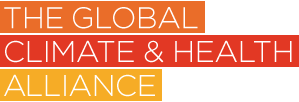Berkeley, California – The Global Climate and Health Alliance (GCHA) criticised the latest moves by governments in the US and Canada, to roll back key components of national environmental policies citing the COVID-19 pandemic and a need to stimulate the economy . There are concerns that China, too, will reboot its economy by doubling down on fossil fuel-based industries and manufacturing, sacrificing the climate and air quality gains made in recent years.
With COP26 on climate action being postponed to 2021 because of the Covid-19 pandemic, it is even more important that governments continue to address climate challenges. Covid-19 has shown us that we cannot protect people’s health without protecting the health of the planet on which human life depends.
Commenting on the developments, Jeni Miller, GCHA Executive Director, said: “It is unconscionable. These attempts to use the pandemic as a cover to undermine science, upend environmental protections, and advantage fossil fuel companies go against the public interest. The coronavirus pandemic is a daunting global health crisis that is, quite rightly, consuming the vast majority of our collective attention. But subsidizing fossil fuel production and relaxing climate and environmental protections will take us out of the frying pan and into the fire, feeding us right back into a world of climate crises and the health crises that result. We’ve got to ensure that public actions and the vast investment of public dollars in response to covid are moving us to a healthier future, not making our situation worse.”
On 30 March, the Trump administration rolled back US automobile fuel efficiency standards, undermining a key component of US climate policy (1). This action was taken despite evidence showing that the move will cost taxpayers more in fuel costs than they would save in car purchase price. It also puts US car makers out of step with stricter emissions requirements internationally, likely undermining the international market for US cars. The move was opposed by several major car manufacturers but benefits fossil fuel companies, which would sell more fuel.
This follows a decision by the same administration on 26 March, citing the pandemic, to suspend enforcement of environmental laws, at the urging of the American Petroleum Institute; and a move earlier last week to fast track a change that would limit scientific data that can be used in environmental rule-making — including the data that links air pollution to health impacts (2). It is some of this data, used for rule-making under the Clean Air Act, that supports regulation of coal fired power plants in the US.
For its part, the government of Alberta, Canada is preparing a multi-billion dollar bail out of the oil and gas sector, funding an unprofitable, failing fossil fuel project, during an oil glut when prices are at a major global low (3).
Miller said: “A key lesson of the corona virus is that we must heed the science and act swiftly on the evidence. The science is clear — we must rapidly phase out fossil fuels to prevent massive threats to health now and well into the future. We cannot let decision makers use the current health crisis as cover for undermining our health going forward.”
Notes to Editors:
(1) https://www.nytimes.com/2020/03/30/climate/trump-fuel-economy.html
(2) https://www.nytimes.com/2019/12/28/climate/trump-administration-war-on-science.html
Contacts:
Jeni Miller, GCHA Executive Director, m.+1 510 409-2456 (PDT, Berkeley, California, UTC-7)
Luisa Colasimone, GCHA communication, m.+351 910 678 050 (WEST, Lisbon, Portugal, UTC+1)
